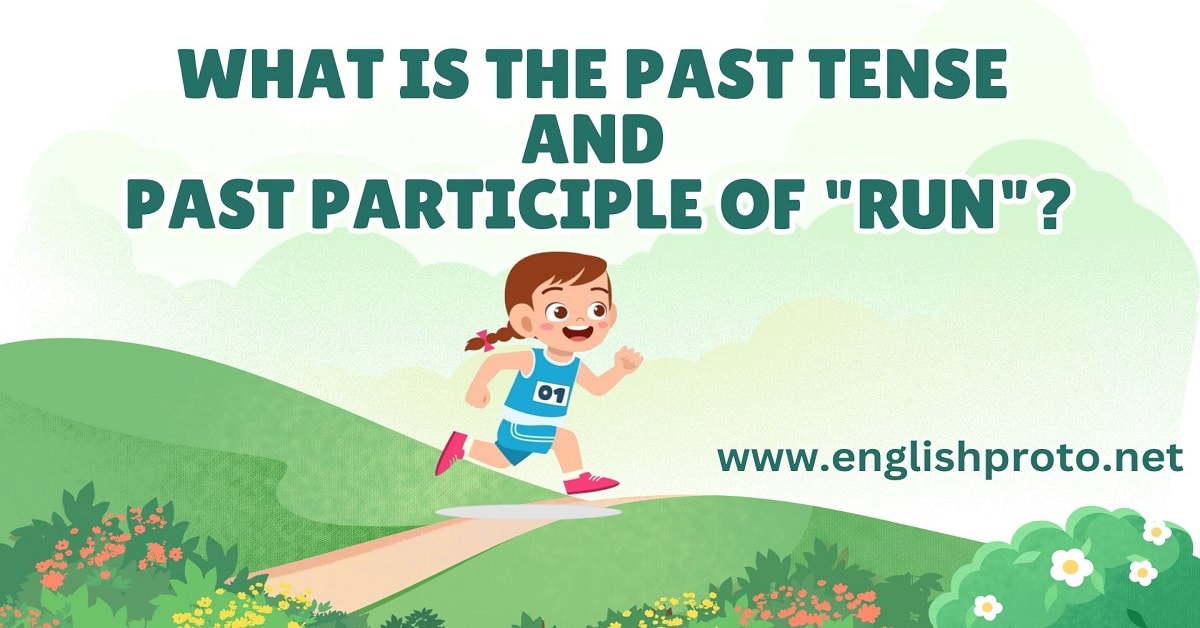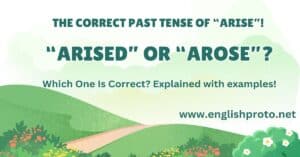What is the Past Tense and Past Participle of “Run”? If you’ve ever paused mid-sentence, wondering whether to say “ran” or “run,” you’re not alone. This little verb can cause big confusion! Its irregular forms trip up even seasoned writers, making it a must-know for anyone aiming to improve their grammar game.
You’re here because you want answers, and we’ve got them. In this article, we’ll break down the differences, share common mistakes, and provide clear examples to help you master “run” in all its forms. Ready to boost your language skills and never second-guess again? Let’s dive in!
Quick Summary
Here’s how the verb “run” shifts across its forms:
| Base Form | Past Tense | Past Participle |
|---|---|---|
| run | ran | run |
- The base form is run (I run to school every morning).
- The past tense is ran (Yesterday, I ran to the store).
- The past participle remains run (I have run this marathon before).
Key Point: Use “ran” for the simple past and “run” with helping verbs like have, has, or had.
Quick Tip
Remember: “ran” shows an action completed in the past, while “run” in the past participle always needs a helper verb.
Reasons for Confusion
English learners often confuse “run,” “ran,” and “run” (past participle) due to:
- Irregularity: Unlike regular verbs, “run” doesn’t follow the standard “-ed” rule for past tense or past participle forms.
- Sound Similarity: The words “ran” and “run” can sound alike in fast or regional speech, leading to errors.
- Influence of Other Verbs: Irregular verbs with similar patterns, like drink/drank/drunk, may mislead users to apply the same logic to “run.”
Detailed Explanation
Present Tense: Run
The present tense of “run” refers to an action happening now or as a general fact:
- I run every weekend.
- They run a small business together.
Past Tense: Ran
The simple past tense, “ran,” describes actions completed in the past without needing a helping verb:
- She ran to catch the bus yesterday.
- We ran through the park after school.
Past Participle: Run
The past participle form “run” requires a helping verb like have, has, or had:
- He has run several marathons in his life.
- By the time I arrived, they had run out of tickets.
Using the past participle form without a helper is incorrect (He run five miles yesterday is wrong).
Common Errors
Here are some frequent mistakes and how to fix them:
| Incorrect Usage | Why It’s Wrong | Correct Form |
|---|---|---|
| I run five miles yesterday. | Mixing present tense with past action | I ran five miles yesterday. |
| She has ran to the store already. | Using “ran” as a past participle | She has run to the store already. |
| He had ran out of time before starting. | Confusing “ran” with “run” in past participle | He had run out of time before starting. |
Quick Tip
Always pair “run” with a helping verb in the past participle.
Synonyms or Alternatives
If you want variety, here are some alternatives to “run” depending on the context:
- Sprint (She sprinted to the finish line.)
- Jog (They jog every morning for exercise.)
- Race (He raced to meet the deadline.)
- Dash (She dashed out the door in a hurry.)
Examples in Sentences
To reinforce the correct usage, here are examples across different tenses:
- Present Tense: I run to work every day.
- Past Tense: Yesterday, we ran in the charity event.
- Past Participle: They have run this race multiple times.
Incorrect Examples:
- She has ran through this park before. (Wrong: should be run)
- I run a marathon last year. (Wrong: should be ran)
Origins and History
The verb “run” originates from Old English rinnan, meaning “to flow or run.” Over centuries, its forms evolved, but the irregular past tense “ran” and past participle “run” remained consistent. This distinction highlights the historical depth of English irregular verbs.
Conclusion
What is the Past Tense and Past Participle of “Run”? Understanding the difference between “run,” “ran,” and “run” in its past participle is crucial for clear communication. Here are the key points to remember:
- Use “ran” for simple past actions (I ran yesterday).
- Use “run” with helper verbs (I have run this before).
- Avoid common errors like using “ran” as a past participle.
By mastering this simple distinction, you’ll enhance your writing and avoid common grammar mistakes. Remember, practice makes perfect, so keep experimenting with these forms in your sentences!



